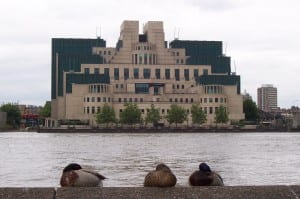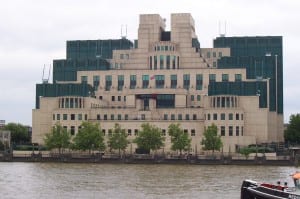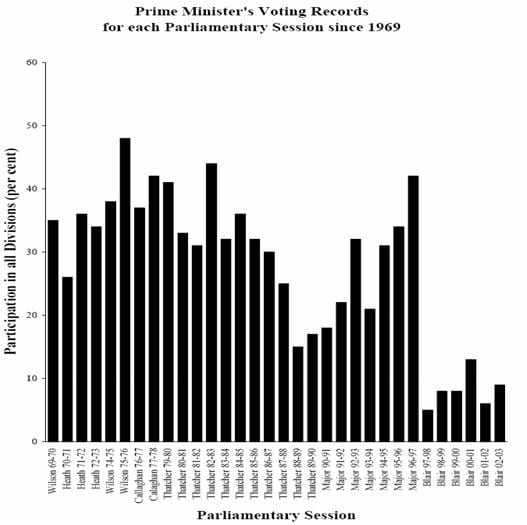 The significance of last week’s appearance of intelligence agency heads before the parliamentary Intelligence and Security Committee (ISC), far outweighed anything that actually emerged from the evidence session itself. The ISC, which was established in 1994, has until this point met entirely in secret. Its membership was appointed by the Prime Minister and its reports are subject to scrutiny and excisions in the Cabinet Office before publication. Recent reforms under the Justice and Security Act, which enhanced the powers of the ISC and reconstituted it as a committee of parliament, were designed in part, to present the committee as a more powerful and independent investigator. As such, this first public evidence session was as much a test for the ISC as it was for those appearing before it.
The significance of last week’s appearance of intelligence agency heads before the parliamentary Intelligence and Security Committee (ISC), far outweighed anything that actually emerged from the evidence session itself. The ISC, which was established in 1994, has until this point met entirely in secret. Its membership was appointed by the Prime Minister and its reports are subject to scrutiny and excisions in the Cabinet Office before publication. Recent reforms under the Justice and Security Act, which enhanced the powers of the ISC and reconstituted it as a committee of parliament, were designed in part, to present the committee as a more powerful and independent investigator. As such, this first public evidence session was as much a test for the ISC as it was for those appearing before it.
The ISC has been criticised in the past for being too close to the agencies, and for the unchallenging nature of its reports. Last week’s evidence session was a fairly anodyne affair, which did little to relieve those concerns. Witnesses appearing before parliamentary select committees are not usually given a platform to make broad statements in support of their position, and those who attempt to do so are generally cut short by select committee Chairs. The ISC’s treatment of the heads of Britain’s three intelligence and security agencies was somewhat different. The witnesses were asked a series of broad open questions, which invited broad and at times predictable responses. They were asked, for example, to comment on the nature of the threat facing Britain today, what impact new technology had on their work, and whether they felt the agencies they represented were too powerful and offered good value for money. Some of the questions were clearly designed to allow the agency heads to make prepared statements dispelling popular myths about their work. It is hardly tenable, for example, that Sir Malcolm Rifkind really believes that GCHQ collects information on ‘the majority of the public’ but his suggestion that they did, allowed the head of GCHQ to refute the notion. Julian Lewis’s question about whether everyone was still spying on everyone else, invited a similarly short and predictable denial. A more illuminating approach might have been to ask about what distinction, if any, the agencies make between hostile and friendly powers.
Hazel Blears went somewhat further then her colleagues in making the case for the agencies, telling them that in seeking to balance the needs of privacy and security they were clearly between ‘a rock and a hard place’, which may well be the case, but it would have been more appropriate if the witnesses, rather than a member of the committee, had made the point. When she later added that most of the public seemed to support the agencies and that some would like them to be given more powers, she was interrupted by the Chair, who clarified that this was ‘not necessarily the view of this committee.’
It is, nevertheless, important to remember that this was the ISC’s first public session and rather than providing a snapshot of the committee’s day-to-day work, much of the questioning was clearly designed to draw out contextual information for the benefit of the watching public. However, the concern will be that the questions are no more taxing when the committee meets in private. It would have been helpful if the ISC had pushed a little further, and at least identified more of those areas about which it will be seeking answers in private session. As it was, the only area in which the agency heads were forced to say that they would prefer to give more details in closed session, related to the manner in which terrorists had benefitted from recent newspaper revelations about the work of GCHQ. This was also the part of their evidence which received most widespread coverage in subsequent media reports.
There was, nevertheless, some interesting material in this session. The most significant comments related to oversight and control. What was clear, and probably is under-appreciated more widely, was the extent to which the agencies are aware of the legal framework within which they operate. Andrew Parker, the head of MI5, reminded the committee that the legislative mandate of the agencies is drawn directly from the European Convention on Human Rights, while GCHQ head, Sir Iain Lobban, in response to a question about whether the legislation had kept pace with technological developments, emphasised that the fundamental principles of necessity and proportionality, were not affected by technological change. Lobban also referred several times to the value of the Commissioners who oversee the issue of warrants to intercept communications and enter property. Little is known about the work of the Commissioners, but on the basis of the evidence presented here, in addition to overseeing the warranting procedure, they also appear to be providing ongoing legal guidance on surveillance methods, which suggests a role more akin to that of legal counsel or inspectors general, which are used widely in the US intelligence community.
Perhaps the most interesting evidence related to the sharing of intelligence with states who may use it in the interrogation and torture of terrorist suspects. The head of SIS, Sir John Sawers, suggested that in such circumstances ‘we seek clear assurances that when we provide intelligence, it will be used lawfully and that if anybody is detained or questioned…it is done to our standards.’ Yet the ISC’s own investigation into rendition in 2007 revealed that there are significant problems in establishing the veracity of such assurances, even when provided by partner countries, such as the United States. It is a shame that this was not followed up by the committee last week. Another area previously examined by the ISC was the interrogation of terrorist suspects by British personnel abroad, which was the subject of an ISC report in 2005. Interestingly, in his evidence last week Sawers conceded that at that time the training and guidance for British personnel were not sufficient to provide ‘clear direction to us, as heads of Agencies, and to our staff in the field about what they can and cannot do.’ This somewhat contradicts assurances given to the ISC in 2005 both by SIS and MI5, that in relation to interrogation techniques their ‘general ethics, methodology and training’ was sound. While Sawers was quick to assert that ‘rigorous compliance procedures’ are now in place, including with new guidance approved by the ISC, admissions about deficiencies in the relatively recent past, and questions about the ISC’s ability to effectively hold the agencies to account for them, have the potential to damage confidence both in the agencies and the committee.
The witnesses all emphasised that in their view there was no need for more legislative restraint, but they also made it clear that this was a question for the politicians and that they would work within whatever limits were placed upon them. This apparent deference to political control perhaps underestimates the influence these powerful individuals have over the political agenda. It would be unusual for a Government to seek to introduce further restraints against their advice. Moreover, by making these statements in public, the agency heads have provided ammunition for those, including within Parliament, who would seek to block further changes to the legislative framework within which they operate.
As this suggests, there are dangers if these evidence sessions are simply allowed to become a platform for the agencies, and it is to be hoped that future sessions become more routine and more robust. As such they may serve to build confidence which will benefit the agencies and enhance the credibility of the ISC. Whatever the flaws, this was an important step forward in terms of accountability both for the intelligence agencies, and the ISC, and it will be interesting to see how it develops.
This blog first appeared on the Democratic Audit blog, and also the Public Finance blog.


